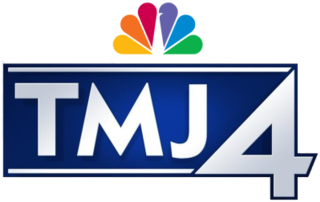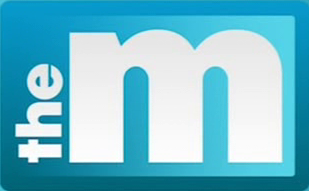Related Research Articles

The Milwaukee Brewers are an American professional baseball team based in Milwaukee. They compete in Major League Baseball (MLB) as a member club of the National League (NL) Central division. The Brewers are named for the city's association with the brewing industry. Since 2001, they have played their home games at American Family Field, which was named Miller Park through the 2020 season and has a seating capacity of 41,900 people.

The Milwaukee Bucks are an American professional basketball team in Milwaukee. The Bucks compete in the National Basketball Association (NBA) as a member of the league's Eastern Conference Central Division. The team was founded in 1968 as an expansion team, and play at Fiserv Forum. Former U.S. Senator Herb Kohl was the long-time owner of the team, but on April 16, 2014, a group led by billionaire hedge fund managers Wes Edens and Marc Lasry agreed to purchase a majority interest in the team from Kohl, a sale which was approved by the owners of the NBA and its Board of Governors one month later on May 16. The team is managed by Jon Horst, the team's former director of basketball operations, who took over from John Hammond.

WACY-TV is an independent television station licensed to Appleton, Wisconsin, United States, serving the Green Bay area. It is owned by the E. W. Scripps Company alongside NBC affiliate WGBA-TV. Both stations share studios on North Road near Airport Drive/WIS 172 in the Green Bay suburb of Ashwaubenon, while WACY-TV's transmitter is located in the Shirley section of Glenmore, Wisconsin.

WTMJ-TV is a television station in Milwaukee, Wisconsin, United States, affiliated with NBC. It is owned by the E. W. Scripps Company alongside Kenosha-licensed Ion Television station WPXE-TV. WTMJ-TV's studios are located on Capitol Drive in Milwaukee, and its transmitter is located approximately four miles (6.4 km) north of downtown Milwaukee.

WISN-TV is a television station in Milwaukee, Wisconsin, United States, affiliated with ABC. Owned by Hearst Television, it is the second-oldest television station to remain with the company in all of its various iterations behind flagship WBAL-TV in Baltimore. WISN-TV's studios are located on North 19th Street on the west end of the Marquette University campus, and its transmitter is located at Lincoln Park in the northeastern part of Milwaukee.

WDJT-TV is a television station in Milwaukee, Wisconsin, United States, affiliated with CBS. It is owned by Weigel Broadcasting alongside three other stations in southeastern Wisconsin: independent station WMLW-TV, MeTV station WBME-CD, and Telemundo affiliate WYTU-LD. The stations share studios in the Renaissance Center office complex on South 60th Street in West Allis, while WDJT-TV's transmitter is located in Milwaukee's Lincoln Park.

WCGV-TV was a television station in Milwaukee, Wisconsin, United States, which operated from 1980 to 2018. In its latter years, it was owned by Sinclair Broadcast Group as an affiliate of MyNetworkTV; it had common ownership with CW affiliate WVTV. WCGV-TV's operations were last housed at WVTV's studio facilities on Milwaukee's northwest side; the station's transmitter was located on the Milwaukee PBS tower on North Humboldt Boulevard in Milwaukee's Estabrook Park neighborhood.

WQRF-TV is a television station in Rockford, Illinois, United States, affiliated with the Fox network. It is owned by Nexstar Media Group, which provides certain services to dual ABC/MyNetworkTV affiliate WTVO under joint sales and shared services agreements (JSA/SSA) with Mission Broadcasting. The two stations share studios on North Meridian Road in Rockford, where WQRF-TV's transmitter is also located.

WISC-TV is a television station in Madison, Wisconsin, United States, affiliated with CBS and MyNetworkTV. It is the flagship television property of locally based Morgan Murphy Media, which has owned the station since its inception. WISC-TV's studios are located on Raymond Road in Madison, and its transmitter is located on South Pleasant View Road in Madison's Junction Ridge neighborhood.

WYTU-LD is a low-power television station in Milwaukee, Wisconsin, United States, affiliated with the Spanish-language Telemundo network. Owned by Weigel Broadcasting, it is sister to CBS affiliate WDJT-TV, Class A MeTV owned-and-operated station WBME-CD and Racine-licensed independent station WMLW-TV. The stations share studios in the Renaissance Center office complex on South 60th Street in West Allis, while WYTU-LD's transmitter is located in Milwaukee's Lincoln Park.

Time Warner Cable, Inc. (TWC) was an American cable television company. Before it was acquired by Charter Communications on May 18, 2016, it was ranked the second largest cable company in the United States by revenue behind only Comcast, operating in 29 states. Its corporate headquarters were located in the Time Warner Center in Midtown Manhattan, New York City, with other corporate offices in Stamford, Connecticut; Charlotte, North Carolina; and Herndon, Virginia.

WMLW-TV is an independent television station licensed to Racine, Wisconsin, United States, serving the Milwaukee area. It is owned by Weigel Broadcasting alongside CBS affiliate WDJT-TV and two low-power stations: Telemundo affiliate WYTU-LD and Class A MeTV owned-and-operated station WBME-CD. The stations share studios in the Renaissance Center office complex on South 60th Street in West Allis, while WMLW-TV's transmitter is located in Milwaukee's Lincoln Park.

Home Box Office (HBO) is an American pay television network, which is the flagship property of namesake parent subsidiary Home Box Office, Inc., itself a unit owned by Warner Bros. Discovery. The overall Home Box Office business unit is based at Warner Bros. Discovery's corporate headquarters inside 30 Hudson Yards in Manhattan's West Side district. Programming featured on the network consists primarily of theatrically released motion pictures and original television programs as well as made-for-cable movies, documentaries, occasional comedy and concert specials, and periodic interstitial programs.

ON TV was an American subscription television (STV) service that operated in eight markets between 1977 and 1985. Originally established by National Subscription Television, a joint venture of Oak Industries and Chartwell Communications, ON TV was part of a new breed of STV operations that broadcast premium programming—including movies, sporting events, and concerts—over an encrypted signal on a UHF television station and leased decoders to subscribing customers. At its peak in 1982, ON TV boasted more than 700,000 customers—more than half of them in Los Angeles, its most successful market. However, the rapidly expanding availability of cable television, coupled with a recession, caused the business to quickly lose subscribers at the same time that Oak Industries was experiencing severe financial difficulties. Between March 1983 and June 1985, all eight operations closed.
Sports Time was a regional sports network in the United States of America. It was owned by a limited partnership headed by Anheuser-Busch and was launched on April 2, 1984. Sports Time was available in 15 states from Colorado to West Virginia.
James Francis Fitzgerald was an American businessman and former professional sports owner, best known as a former owner of the Milwaukee Bucks and the Golden State Warriors, both NBA teams.

Bally Sports North is an American regional sports network owned by Diamond Sports Group, and operates as a Bally Sports affiliate. The channel broadcasts coverage of sporting events involving teams located in the Upper Midwest region, with a focus on professional and collegiate sports teams based in Minnesota.

Bally Sports Wisconsin (BSWI) is an American regional sports network owned by Diamond Sports Group, and operates as an affiliate of Bally Sports. Operating as the "Wisconsin" sub-feed of Fox Sports North until 2007, the channel was known as Fox Sports Wisconsin until 2021. It broadcasts regional coverage of sports events throughout the state of Wisconsin, with a focus on professional sports teams based in Milwaukee, namely the Milwaukee Brewers of Major League Baseball and the Milwaukee Bucks of the National Basketball Association. It primarily operates from a studio/office facility in downtown Milwaukee, with secondary offices and production studio/office hub based in downtown Minneapolis, Minnesota.
Total TV Inc. was a regional cable television company started by Jim Fitzgerald in 1964. Fitzgerald, J.P. Cullen, the Ryan brothers and several other investors began the company because of the poor quality television signals in their hometown of Janesville, Wisconsin. Fitzgerald would later purchase the Milwaukee Bucks in 1976 and the Golden State Warriors in 1987 with many of these same investors.

WSNS-TV is a television station in Chicago, serving as the local outlet for the Spanish-language network Telemundo. It is owned and operated by NBCUniversal's Telemundo Station Group alongside NBC outlet WMAQ-TV ; it is also sister to regional sports network NBC Sports Chicago. WSNS-TV and WMAQ-TV share studios at the NBC Tower on North Columbus Drive in the city's Streeterville neighborhood; both stations are broadcast from the same transmitter atop the Willis Tower in the Chicago Loop.
References
- ↑ "Bucks, Brewers plan TV expansion". Wisconsin State Journal. Associated Press. September 10, 1981. p. 2. Archived from the original on October 9, 2021. Retrieved November 10, 2019.
- ↑ Brown, Merrill (April 2, 1984). "Cable Sports Network Set For Kickoff". Washington Post. Archived from the original on November 10, 2019. Retrieved November 10, 2019.
- ↑ Hastings, Julianne (August 26, 1983). "Cable, pay TV to have new shows". Bucyrus Telegraph-Forum. UPI. p. 14. Archived from the original on October 9, 2021. Retrieved November 10, 2019.
- ↑ "Sports network to begin". Herald-Times-Reporter. Associated Press. October 12, 1983. p. 11. Archived from the original on October 9, 2021. Retrieved November 10, 2019.
- 1 2 Gardner, Charles (March 18, 1984). "Cable companies differ on Sportsvue offer". La Crosse Tribune. p. 41. Archived from the original on October 9, 2021. Retrieved November 10, 2019.
- ↑ "TV sports network to begin on April 3". Stevens Point Journal. Associated Press. January 28, 1984. p. 10. Archived from the original on October 9, 2021. Retrieved November 10, 2019.
- 1 2 Rosenthal, Phil (July 13, 1984). "Sportsvue gaining, looks like a winner". The Capital Times. p. 17. Archived from the original on October 9, 2021. Retrieved November 10, 2019.
- 1 2 Hughes, John (September 2, 1984). "Sportsvue starts slowly". Wisconsin State Journal. p. 1. Archived from the original on October 9, 2021. Retrieved November 10, 2019.
- ↑ Gerds, Warren (March 17, 1985). "Sports pay-cable due here April 3". Green Bay Press-Gazette. p. A-11. Archived from the original on October 9, 2021. Retrieved November 10, 2019.
- ↑ "Bucks' future tied to cable". The Capital Times. Associated Press. January 30, 1984. p. 13. Archived from the original on October 9, 2021. Retrieved November 10, 2019.
- ↑ "Cable TV fee list misleading". Kenosha News. February 7, 1984. p. 8. Archived from the original on October 9, 2021. Retrieved November 10, 2019.
- ↑ "Sportsvue Cable starts out". Kenosha News. UPI. March 26, 1984. p. 17. Archived from the original on October 9, 2021. Retrieved November 10, 2019.
- ↑ "Group W Cable offers SportsVue". La Crosse Tribune. June 20, 1984. p. 16. Archived from the original on October 9, 2021. Retrieved November 10, 2019.
- 1 2 Wodalski, Ed (April 23, 1984). "Sportsvue not likely for local TV sports fans". Wausau Daily Herald. p. 17. Archived from the original on October 9, 2021. Retrieved November 10, 2019.
- 1 2 Hoffmann, Gregg (February 3, 1985). "SportsVue demise gives Bucks jitters". Sunday News. p. D3. Archived from the original on October 9, 2021. Retrieved November 10, 2019.
- ↑ "Sportsvue eyes April 3 start". The Capital Times. Associated Press. February 3, 1984. p. 17. Archived from the original on October 9, 2021. Retrieved November 10, 2019.
- ↑ Rosenthal, Phil (March 9, 1984). "Sportsvue cable TV: reality or just dream?". The Capital Times. pp. 15, 20. Archived from the original on October 9, 2021. Retrieved November 10, 2019.
- ↑ Richards, Tom (May 25, 1984). "Sportsvue unlikely in Neenah-Menasha". Post-Crescent. p. B-6. Archived from the original on October 9, 2021. Retrieved November 10, 2019.
- ↑ "CATV won't offer Sportsvue". Leader-Telegram. June 5, 1984. p. 9C. Archived from the original on October 9, 2021. Retrieved November 10, 2019.
- ↑ Hernet, Dennis (December 9, 1984). "Kindergarten creates hospital to allay fears". Herald-Times-Reporter. p. 9. Archived from the original on October 9, 2021. Retrieved November 10, 2019.
- ↑ "SportsVue cutting staff by one-third". Stevens Point Journal. Associated Press. January 25, 1985. p. 12. Archived from the original on October 9, 2021. Retrieved November 10, 2019.
- ↑ "SportsVue to cut programming and raise its rates". Green Bay Press-Gazette. Associated Press. January 29, 1985. p. B-4. Archived from the original on October 9, 2021. Retrieved November 10, 2019.
- 1 2 Lavelette, Bill. "SportsVue Cable Folds; Bucks To Take Hard Look At Future In Milwaukee". Sheboygan Press. Associated Press. p. 19. Archived from the original on October 9, 2021. Retrieved November 10, 2019.
- 1 2 "Milwaukee Bucks owner James Fitzgerald says other cities have asked..." UPI. February 5, 1985. Archived from the original on November 10, 2019. Retrieved November 10, 2019.
- 1 2 "Fitzgerald puts Bucks up for sale". Post-Crescent. Associated Press. February 5, 1985. p. D-1. Archived from the original on October 9, 2021. Retrieved November 10, 2019.
- ↑ "Sportsvue's demise can be blamed on many factors". The Capital Times. February 8, 1985. p. 17. Archived from the original on October 9, 2021. Retrieved November 10, 2019.
- ↑ Embry, Mike (March 2, 1985). "Bucks sold; will stay in Milwaukee". Journal Times. Associated Press. p. 1B. Archived from the original on October 9, 2021. Retrieved November 10, 2019.
- ↑ "Fitzgerald says Bucks sale not planned". Leader-Telegram. Associated Press. June 18, 1985. p. 3B. Archived from the original on October 9, 2021. Retrieved November 10, 2019.
- ↑ Prigge, Matthew J. (September 27, 2013). "The Rise and Fall of 'Sportsvue,' the Milwaukee Brewers Superstation". Shepherd Express.
- ↑ Gerds, Warren (June 15, 1983). "Channel 2 had an edge on Starr show". Green Bay Press-Gazette. p. B-12.
- ↑ Gerds, Warren (April 6, 1985). "'Mr. Belvedere' may prove costly to Brewers". Green Bay Press-Gazette. p. A-6.
- ↑ Gerds, Warren (February 16, 1985). "More or less: Sports coverage gets bounced". Green Bay Press-Gazette. p. A-7.
- ↑ Hoffmann, Gregg (December 10, 1995). "Fans' rollercoaster ride keeps twisting". Kenosha News. p. D5. Retrieved October 8, 2021.
- ↑ Shemanske, Susan (April 9, 1996). "Exposure cable deal's main focus". The Journal Times. pp. 1A, 7A.
- ↑ Kleinmaier, Bryan (April 12, 1997). "Football springs into action". Wisconsin State Journal. p. 2D.
- ↑ Austin, Jim (January 29, 1998). "There's a new savior for Wisconsin sports fans". The Daily Tribune. p. 1B. Retrieved October 8, 2021.